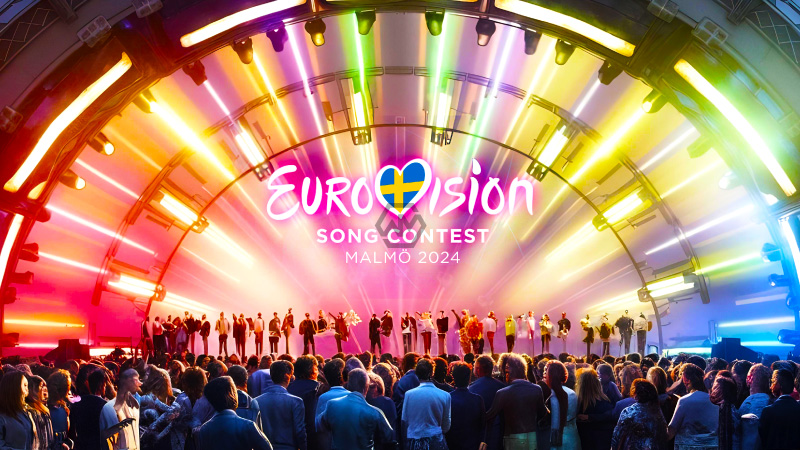- The Eurovision Song Contest is an international pop music contest that honors pop’s sense of national pride.
- The competition this year will take place in Malmö, with a grand final on May 11 after two semifinals on May 7 and 9.
- Pop music organizers work hard to keep political differences out of the competition.
Held every May in Malmö, Sweden, the Eurovision Song Contest is an international pop music contest that honors pop’s joyful force, diversity, and sense of national pride.
Since its founding in 1956 to promote unification following World War II, it has expanded to include nearly 40 countries, including non-European countries like Australia and Israel. The competition is renowned for its songs, which range from catchy to absurd, frequently accompanied by lavish staging and costumes.
Eurovision Song Contest
The competition this year will take place in Malmö, with a grand final on May 11 after two semifinals on May 7 and 9. With seven victories, only Ireland has more than this Nordic powerhouse in the Eurovision contest. It’s been 50 years since ABBA won the 1974 competition with “Waterloo,” which catapulted the group into popularity and sparked the Swedish music industry. It has been fifty years since that triumph.
Pop music organizers work hard to keep political differences out of the competition, therefore political tensions are not usually prevalent in the genre. The competition was staged in Liverpool last year since the 2022 winner, Ukraine, was at war, and Russia has been barred since it invaded Ukraine in 2022.
Due to Israel’s actions in its war against Hamas, which has resulted in the deaths of over 33,000 Palestinians in Gaza, pro-Palestinian groups and a few musicians have requested the event organizers to remove Israel from the lineup.
Although the contest’s organizers have occasionally been charged with being inconsistent in defining its parameters, they have stood by their choice to exclude political entries. During Eurovision week, pro-Palestinian organizations organize protests in Malmo’s downtown, expecting to bring thousands of demonstrators from Sweden and nearby nations.
Although it is difficult to anticipate the winners due to the intricate voting method, many acts are performed in their native tongues, and some use instruments and traditional traditions. Other noteworthy entries are “The Code” by Swiss singer Nemo and “Rim Tim Tagi Dim” by Croatian singer-songwriter Baby Lasagna.
National broadcasters in the participating countries, Peacock, an American streaming service, and the Eurovision YouTube channel will all broadcast the competition. While viewers in non-participating countries can vote via phone or text message, viewers in participating nations can cast their votes online or using the Eurovision app.



